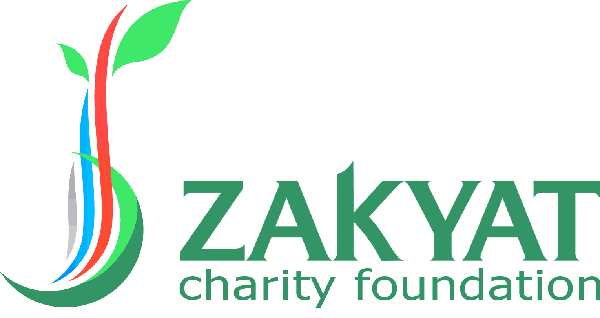Conditions under which the payment of Zakyat is compulsory
Now we turn to what theologians have concluded on the basis of the Sunnah of the Prophet.
Zakyat is paid annually from all monetary units (currencies), gold and silver. If all this in aggregate is equal to the cost of 84.8 g of gold.
Who pays Zakyat and who does not?
In case a person is a debtor that does not allow him to have the said amount, or does not have the minimum conditions for normal living (his own housing, the minimum amount of furniture, the most necessary clothing, etc.) and postpones money for their acquisition, then he is not obliged to pay Zakyat.
Zakyat is not paid from personal property (from an apartment, car, dacha, office equipment, etc.), as well as from precious stones and metals (except gold and silver).
As for the gold and silver ornaments, the opinions on the payment of Zakyat from them are the following:
– Hanafi theologians claim that Zakyat is paid annually from all forms of gold and silver, regardless of whether it is scrap (formless gold, bars) or jewelry, it is used or stored without use;
– the theologians of the Hanbal and Shafi’i mazhabs believe that if the owners use gold or silver, then Zakyat from them is not paid. If you store without using or wearing, then once a year the payment from them Zakyat is compulsory;
– theologians of the Malikit mazhab argue that if the decorations are used by the owners, then Zakyat from them is not paid. If gold or silver jewelry is stored as material assets for use if necessary (in difficult financial situations) or if there is an intention to use them later (for example, as a dowry to daughters or a gift to the bride), then Zakyat from them is paid annually.
Zakyat is not paid to close relatives: father and mother, grandfather and grandmother, great-grandfather and great-grandmother, son and daughter, grandson and granddaughter, great-grandchildren and great-granddaughters. Also you can not pay Zakyat to your wife. All other relatives can and even prefer to pay Zakyat if they relate to the aforementioned categories of people. When paying Zakyat tore latives, it is better to follow the following sequence: brothers, sisters, nephews, uncles by mother, aunts by mother, then by their children (cousins, sisters), etc.
It is important to remember that people who (1) have minimal means of subsistence (their own housing, the most necessary household items, etc.) and, (2) not including monthly expenses, possess a nisab (what amounts to 84.8 g gold), do not have the right to receive Zakyatnye money, referring to the first two of the above categories, but, on the contrary, they themselves must pay Zakyat.
People engaged in trade, whose money is constantly in the commercial turnover, pay 2.5% of Zakyat once a year from the money that is in turnover (working capital), if these investments are profitable, and not unprofitable. At the same time, from what is used to conduct trade (and this is fixed assets – offices, transport, office equipment, etc.), Zakyat is not paid.
These who have their own enterprises for the extraction of oil, gold, diamonds and other precious metals and precious metals extracted from the ground, according to the majority of scientists, must pay Zakyat at a rate of 20% of the value of the output. This canonical statement is based on the hadith: “[Zakyat] from the treasure – the fifth part”. “In this case, Zakyat should be paid at a rate of 20% of the value of everything valuable that is extracted from the ground,” the Islamic theologians, including Abu Hanifa and Abu Ubaid, commented on this hadith, as well as the famous theologian of our time, Yusuf al-Kardavi.
Zakyat is also paid from the harvest: “… Eat, eat fruits during the fruiting period [partial harvesting of fruits for their own needs before their full maturation, as well as for paying Zakyat, but after full ripening], transfer the appropriate portion of the crop immediately after harvest (collection) [as an obligatory charity (Zakyat): a tenth of the crop – if everything grew independently during rain irrigation; the twentieth – if the owner had to participate in irrigation, irrigation of lands, to bear in connection with this physical and financial costs]. And do not waste [do not waste on something that is useless, and even less – harmful; do not give out everything to charity, leaving the family for the coming year without food, trusting in God, they say, He will help].
Verily, “The Prophet Muhammad (peace and blessings of Allaah be upon him) said:” Zakyat is not paid from gold until its weight is equal to twenty mizqals “(see, for example: Al-Qasani, Badai’u as-sonai ‘fitartibi ash- Shareei. “In 10 vols. T. 2. S. 410). One mithqal, with respect to gold, is 4.24 g, which results in 84.8 g (see: Mu’jamu lyugati al-fukaha ‘, p. 404), (nisab), and this amount, decreasing or increasing, was stored during the year and after the year is equal to or equal to this value (84.8 grams of gold), then in this case 2.5% of Zakyat is paid from the total amount (for example, from the moment when the person or the family has accumulated in the budget a sum equivalent to 84.8 g of gold, the countdown begins). For example, on July 1, 2016, such a sum was set aside (equivalent to 84.8 g of gold). This is fixed and forgotten for a year. In a year (July 1, 2017), the total of the saved savings is counted. Suppose that the amount has increased to 10 000 euros, then Zakyat is paid, that is 250 euros. A year later, 100,000 euros were accumulated (yes God wills and more), then the amount of payments will be 2500 euros. And so on”.








